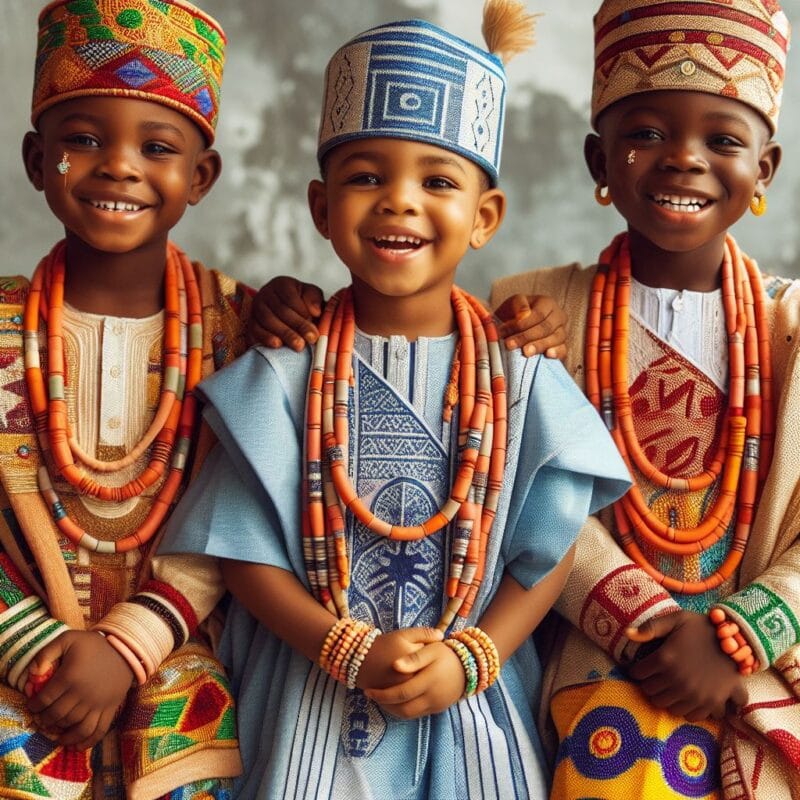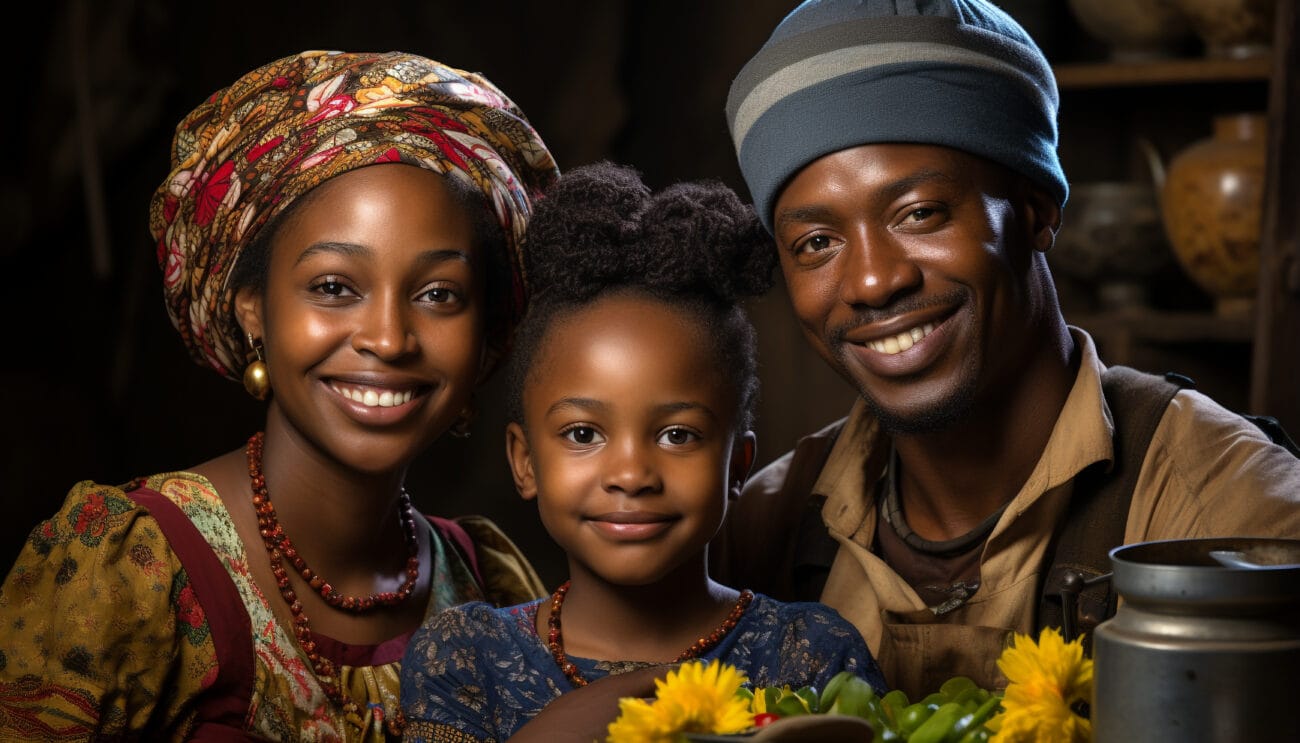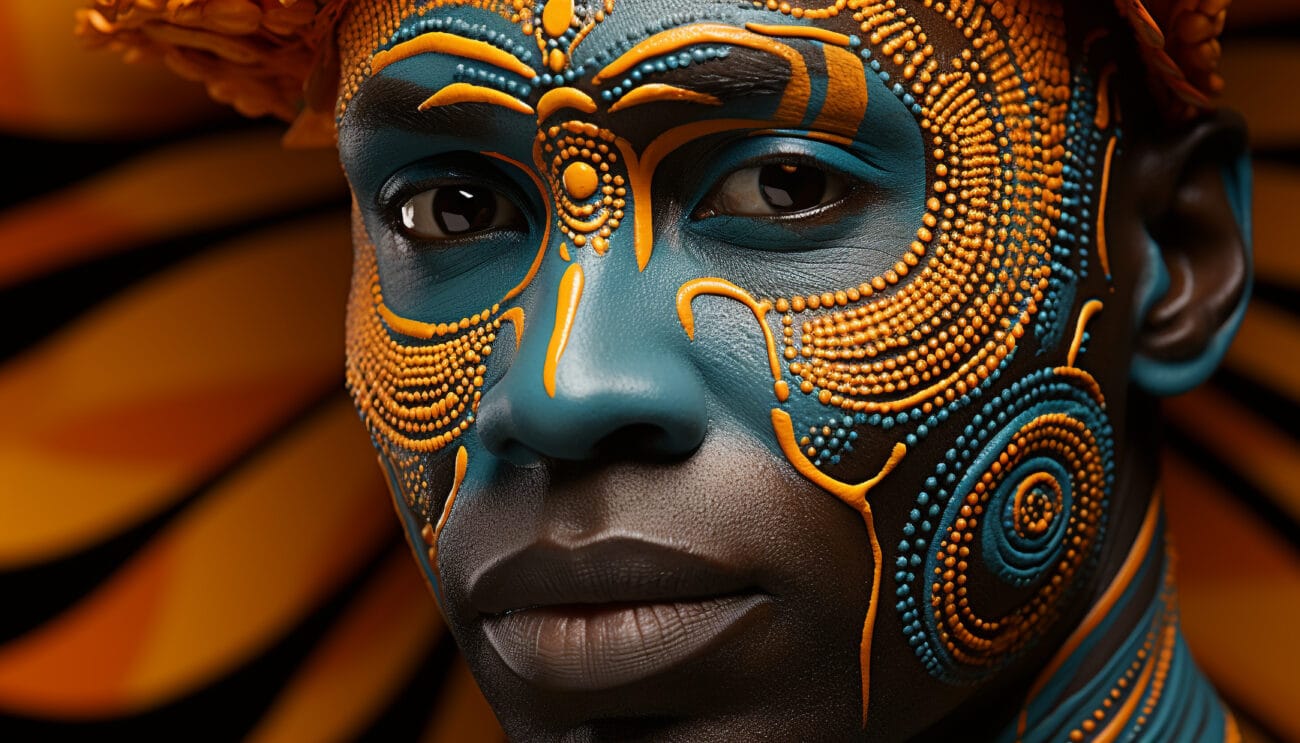Challenges Of Raising An African Child In Diaspora

Raising an African child in the diaspora often comes with unique challenges due to the dominant Western culture. Children raised in the Diaspora may adopt Western values and behaviours that are not aligned with African traditions. This can lead to a loss of cultural identity and a sense of disconnection from their African heritage.
This is why as a Nigerian community we’ve come together to establish an educational program that teaches African culture and values to your children. This will help children develop a strong sense of cultural identity and connection to their African heritage while learning their language.
This article highlights the challenges faced by African parents in the Diaspora and the need for proactive problem-solving to address these challenges. By establishing educational programs that teach African culture and values, African parents can help their children develop a strong sense of cultural identity and connection to their African heritage.
The Importance Of Cultural Identity And Its Connection To Your Cultural Heritage
As African parents, our cultural identity and connection to our heritage are the foundations upon which our children’s sense of self is built. It’s the soil in which their roots grow deep, anchoring them in a sense of belonging and purpose.
When we connect our children to our cultural heritage, we give them a sense of pride and identity that can weather any storm. We teach them the values and traditions that have been passed down through generations, and help them understand where they fit into the larger story of our people.
But it’s not just about telling them stories, it’s about living it with them. It’s about speaking our native language at home, cooking traditional meals together, and attending cultural events as a family. It’s about making our cultural heritage a living, breathing part of our daily lives.
When our children are connected to our cultural heritage, they’re more likely to develop a strong sense of self and purpose. They’re more likely to be confident and proud of who they are, and to make choices that align with our values and traditions.
In a world that often seeks to erase our cultural identities and assimilate us into dominant cultures, it’s more important than ever that we prioritize our connection to our heritage. We must be intentional about passing on our cultural traditions and values to our children, and about creating spaces for them to explore and express their cultural identities.
The Challenges Faced By African Parents In The Diaspora

African parents in the Diaspora face significant challenges in passing on their cultural values to their children. One of the main reasons are;
Dominant Western culture that surrounds them:
The constant exposure to Western values and norms can make it difficult for children to embrace their African heritage. According to a study published in the Journal of Black Psychology, “African immigrant parents in the United States face significant challenges in passing on their cultural values to their children due to the dominant Western culture”
The study found that parents struggled to balance their desire to maintain their cultural heritage with the need to adapt to their new environment. For instance in the western countries kids have a lot of freedom and rights, which can make it hard for parents to discipline them. In African cultures, parents typically have more authority over their kids. In places like the US, parents worry about being seen as too strict or even abusive if they try to discipline their kids.
Lack of cultural resources and support:
Many African parents in the Diaspora lack access to cultural events, traditional clothing, and authentic food, making it difficult to pass on their cultural practices to their children.
Media Influence:
This plays a significant role in shaping children’s perceptions of their cultural identity. According to a report by the Africa-based research organization, Afro barometer, “the media can either reinforce or undermine African cultural values”
The report found that Western media often exposes children to messages that promote individualism and materialism, conflicting with African values of community and collectivism.
Language barriers:
This can also hinder the transmission of cultural values. Many African parents in the Diaspora struggle to maintain their native language, making it difficult to pass on their cultural heritage to their children.
Educational system:
This can also pose a challenge. According to a study published in the Journal of African American Studies. “The educational system in the United States often perpetuates a Eurocentric curriculum that marginalizes African cultural values”
The study found that educators often teach children to prioritize Western values and norms over their own cultural heritage.
Tips to overcome these challenges of raising an African child abroad
To overcome these challenges, African parents in the Diaspora must be intentional about passing on their cultural values to their children. This involve seeking out cultural resources and support, speaking their native language at home, and exposing their children to African cultural events. Lets dive into possible solutions:
Enrol your child in educational program that teach African culture and values:
The need for educational programs that teach African culture and values to your kids can not be overstated. As the world becomes increasingly globalized, it is essential that we prioritize the preservation and promotion of African cultural heritage. Intentional educational programs that teach African culture and values to the next generation can achieve this goal.
For instance your child can not speak your Nigerian language. You can enrol them for an online language program in Yoruba, Igbo or Hausa. It could be a group class or private. Whichever suits your child.
Speak your native language at home:
Speaking your native language at home is essential in passing on African cultural values to your child. Using your native language at home will help your child learn about your culture and heritage. It will also help them develop a sense of pride and identity in their African roots.
Expose your child to African cultural events and traditions:
Exposing your child to African cultural events and traditions is vital in helping them understand and appreciate their heritage. Attend African cultural festivals, concerts, and events with your child. Teach them about the significance of different traditions and customs. For example: you can attend a traditional African wedding or a cultural festival with your child and explain the significance of the different customs and traditions.
Make cultural practices a part of your daily routine:
Making cultural practices a part of your daily routine is essential in passing on African cultural values to your child. Incorporate traditional African practices into your daily routine, such as greetings, blessings, or prayers. Teach your child about the importance of respect for elders and community in African cultures. By making cultural practices a part of your daily routine, you’ll help your child appreciate their African heritage.
Conclusion
Remember, dear parent, that raising an African child in a diaspora requires patience, love, and understanding. By creating a supportive environment and encouraging cultural exploration, you’ll help your child stay connected to their African heritage.
Read next: How to Get Your Child Connected To Their Nigerian Heritage.








[…] But here’s the thing: you’re not alone. Many Nigerian parents in the diaspora are facing the same challenges, and there are tips to overcome these challenges. […]